Bio-degradable cards
Every card imaginable!
|
Bio-degradable cards Every card imaginable! Is Snoring Always a Sign of Sleep Apnea?It's a question many of us have asked ourselves, or perhaps had a loved one ask us – "Is that snoring normal?" The rumble and grumble of snoring can be a nightly soundtrack for millions across the UK, and it's completely understandable to feel a bit worried about what it might mean. You might be wondering if it's just a common nuisance or something more serious, like sleep apnea. We hear you, and you're definitely not alone in seeking answers. This guide is here to help you understand the difference between everyday snoring and snoring that could be a sign of sleep apnea. We'll break down why we snore, what sleep apnea actually is, and how you can tell if your snoring needs a closer look. Our aim is to give you clear, straightforward information so you can feel more in control and understand what steps you might need to take. Table of Contents
What is Snoring?Snoring is a very common sound made when you're asleep, and it happens when the air flowing through your nose and mouth is partially blocked. When you breathe in, the air causes the tissues in the back of your throat to vibrate. Think of it like a flag flapping in the wind – the air moves past a loose structure, and it makes a sound. For some people, snoring is a soft, gentle purr, while for others, it can be a loud, disruptive roar that can be heard from other rooms. It's estimated that around 40% of adults in the UK snore regularly, so if you or someone you know snores, you're certainly not alone. It's a widespread phenomenon that can affect people of all ages, though it tends to become more common as we get older. Understanding the Mechanics of SnoringTo really get to grips with snoring, it's helpful to understand a little bit about what's going on inside your body when you sleep. When you're awake, the muscles in your throat keep your airway open and firm. But when you drift off to sleep, especially into deeper stages of sleep, these muscles naturally relax. This relaxation is perfectly normal and a necessary part of getting a good night's rest. However, for some people, this relaxation causes the soft tissues at the back of the throat – things like your soft palate (the soft part at the back of the roof of your mouth), uvula (the little fleshy bit that hangs down), tonsils, and the base of your tongue – to become floppy. When you breathe in and out, the air rushing past these relaxed, floppy tissues makes them vibrate against each other. It's these vibrations that create the familiar sounds of snoring. The narrower your airway becomes, or the more these tissues vibrate, the louder and more frequent the snoring tends to be. The Different Sounds of SnoringSnoring isn't just one type of sound; it can vary quite a lot. You might have noticed that some people have a soft, almost whistling snore, while others produce a deep, rumbling noise. The type and loudness of the snore depend on several factors, including how much the airway is narrowed and which specific tissues are vibrating. For instance, if the obstruction is mainly in the nasal passages, the snoring might sound a bit more like a snort or a whistle. If the soft palate and uvula are the main culprits, the sound might be more of a classic 'sawing wood' type of snore. Sometimes, a person might even make gasping or choking sounds during their sleep, which is a particular type of snoring that can be a red flag for more serious underlying issues, which we'll discuss later. Understanding that snoring isn't uniform can be helpful when thinking about whether it's just a minor annoyance or something that needs further investigation. 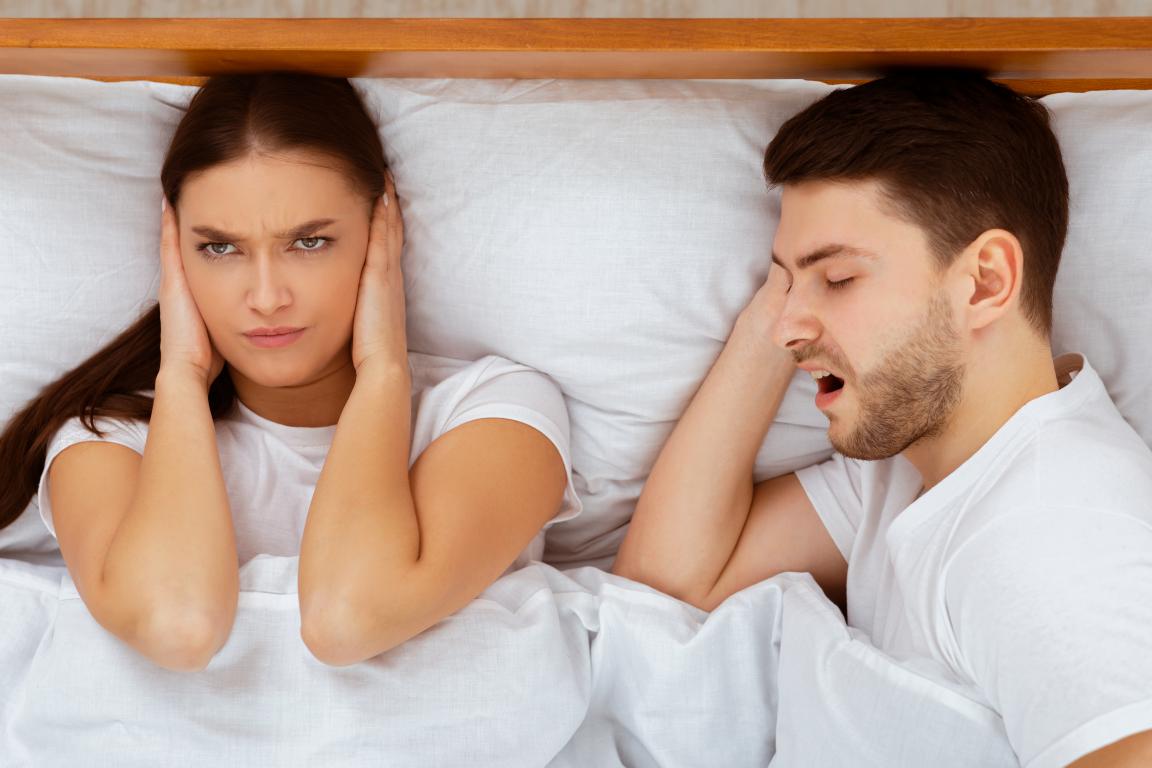
Why Do We Snore?Snoring isn't something we do on purpose; it's an involuntary action that happens when specific conditions align during sleep. There isn't just one reason why someone snores; it's often a combination of factors. Knowing these common causes can help you understand your own snoring or that of a loved one better, and it can also give clues about potential solutions. Common Causes and Contributing FactorsOne of the most frequent reasons for snoring is simply the anatomy of your mouth and sinuses. Some people naturally have a narrow throat, enlarged tonsils or adenoids, a long soft palate, or a large uvula. These physical characteristics can make them more prone to snoring because there's less space for air to pass through freely, leading to more vibration of the soft tissues. Alcohol consumption and certain medications, like sedatives or muscle relaxants, can also significantly contribute to snoring. These substances relax the muscles in your throat even more than usual, increasing the likelihood of vibrations and noise. This is why you might notice your snoring is much louder after a night out or if you've taken certain cold and flu remedies that contain sedatives. Your sleeping position plays a big role too. Lying on your back often makes snoring worse because gravity pulls your tongue and soft palate towards the back of your throat, narrowing your airway. Sleeping on your side can sometimes alleviate snoring for this very reason. Nasal problems, such as a stuffy nose from a cold, allergies, or a deviated septum (where the wall between your nostrils is off-centre), can force you to breathe through your mouth more. Mouth breathing can lead to more vibration of the throat tissues. Even something as simple as dusty air or a dry environment can irritate your nasal passages and throat, contributing to snoring. Being overweight is another significant factor. Excess fatty tissue around the neck can put pressure on your airway, narrowing it and making snoring more likely. This added tissue can also make the throat muscles more prone to collapsing during sleep. Finally, age can also play a part. As we get older, the muscles in our throat naturally lose some of their tone and become more relaxed, which can increase the chances of snoring. It's not a guarantee, of course, but it's a common observation that snoring often starts or worsens with age. Lifestyle and Environmental TriggersBeyond the physical reasons, several lifestyle choices and environmental factors can trigger or worsen snoring. Understanding these can empower you to make changes that might reduce or even eliminate your snoring. Smoking is a well-known irritant for the airways. It can inflame the lining of your throat and nasal passages, leading to swelling and narrowing. This irritation makes you more susceptible to snoring, and giving up smoking can often lead to a noticeable improvement in snoring, as well as many other health benefits. Allergies, whether seasonal or year-round, can cause nasal congestion and swelling in the throat. When your nose is blocked, you're more likely to breathe through your mouth, which, as we've discussed, can lead to snoring. Managing allergies effectively, perhaps with antihistamines or by avoiding allergens, can help keep your airways clearer. Dehydration might seem like a minor point, but it can actually make a difference. When you're dehydrated, the secretions in your nose and throat can become thicker, making them stickier and more likely to contribute to airway obstruction and vibration. Ensuring you drink enough water throughout the day can help keep these secretions thinner and your airways clearer. Even the air quality in your bedroom can affect snoring. Dry air, especially during colder months when central heating is on, can dry out your nasal passages and throat, leading to irritation and swelling. Using a humidifier in your bedroom might help to add moisture to the air, making it easier to breathe and potentially reducing snoring. Similarly, dust, pet dander, and other allergens in your bedroom can exacerbate symptoms if you're sensitive to them. Regular cleaning and ensuring good ventilation can make a difference. As you can see, there's a whole host of reasons why someone might snore. It's often not just one thing, but a combination of these factors that contribute to the nightly symphony. 
Is All Snoring the Same?It's a common misconception that all snoring is just, well, snoring. However, there's a significant difference between simple, occasional snoring and snoring that is a symptom of a more serious underlying health condition like sleep apnea. Recognising these differences is really important, not just for your own peace of mind, but also for knowing when it might be time to seek medical advice. Simple Snoring vs. Problematic SnoringSimple snoring, often referred to as primary snoring, is generally considered harmless, although it can certainly be a nuisance for anyone trying to sleep nearby! This type of snoring is usually consistent and steady, without pauses in breathing or gasping sounds. People who experience simple snoring often don't have daytime sleepiness or other health issues directly linked to their snoring. It might occur occasionally, perhaps after a particularly tiring day, a few drinks, or when you have a cold. It might also happen regularly but doesn't disrupt the snorer's own sleep quality or lead to other health complications. The main concern with simple snoring is usually its impact on a bed partner's sleep rather than the snorer's health. On the other hand, problematic snoring is different. This is the kind of snoring that raises red flags and often indicates a more serious issue, most commonly obstructive sleep apnea (OSA). What distinguishes problematic snoring isn't just its loudness, but its characteristics. If your snoring is very loud, irregular, and punctuated by gasps, snorts, or periods of silence where you stop breathing, then it's moving into the territory of problematic snoring. Key Indicators of Problematic SnoringSo, how can you tell the difference? Here are some key indicators that suggest your snoring might be more than just simple snoring:
It's important to remember that you might not experience all of these symptoms. However, if you or your bed partner notice several of these signs, particularly the breathing pauses or excessive daytime sleepiness, it's a strong signal that your snoring warrants further investigation. It's at this point that your snoring crosses the line from a simple annoyance to a potential health concern. 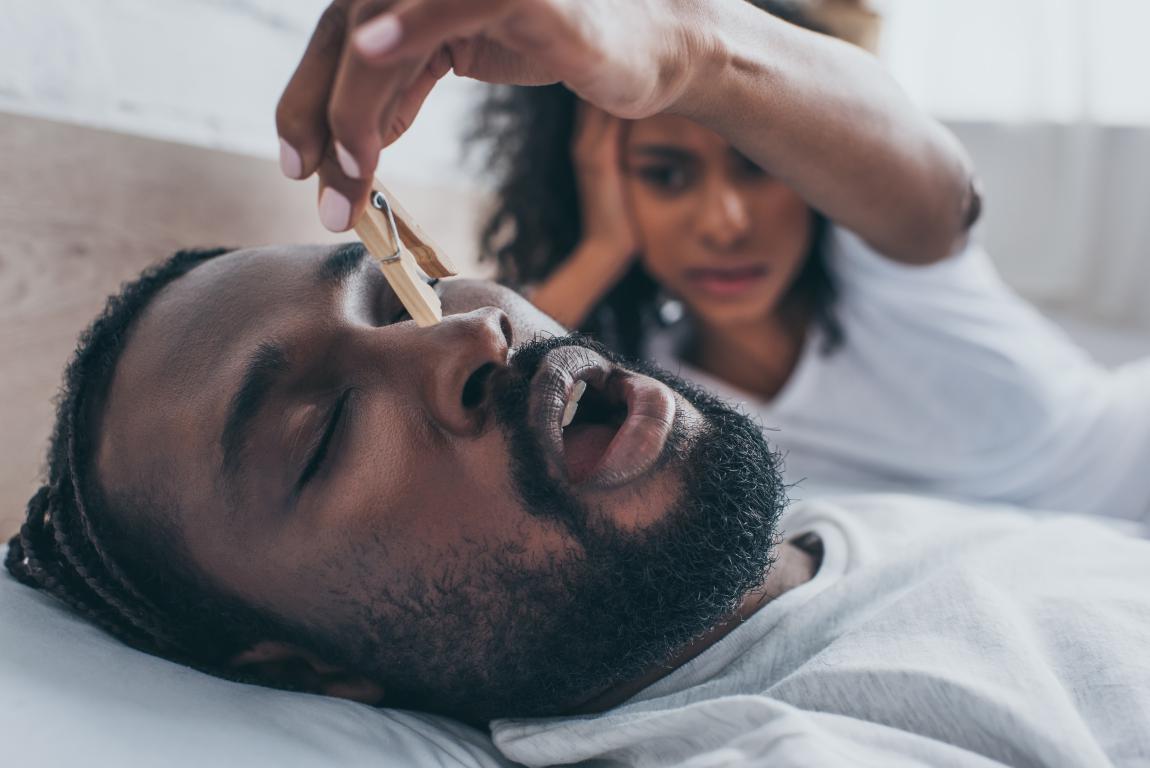
What is Sleep Apnea?Sleep apnea is a serious sleep disorder where a person repeatedly stops and starts breathing during sleep. The word "apnea" actually comes from Greek and means "without breath." These breathing pauses can last from a few seconds to more than a minute, and they can happen many times each hour. While snoring is often associated with sleep apnea, it's crucial to understand that sleep apnea is a distinct and more complex condition. It's not just about the noise; it's about the fundamental disruption to your breathing and, consequently, to the quality of your sleep and your overall health. Many people with sleep apnea don't even realise they have it, as the breathing pauses happen while they're asleep, and they often don't fully wake up or remember them. This is why a bed partner is often the first to notice the characteristic signs. The Different Types of Sleep ApneaThere are actually a few different types of sleep apnea, but the vast majority of cases fall into one main category:
For the purpose of this guide, when we refer to "sleep apnea," we'll primarily be talking about Obstructive Sleep Apnea (OSA) due to its strong link with snoring and its prevalence. The Impact of Sleep Apnea on the BodyLiving with untreated sleep apnea can have serious and far-reaching consequences for your health, both in the short term and over many years. It's much more than just feeling tired; it affects almost every system in your body. Daytime Symptoms: The most immediate and noticeable impact is often excessive daytime sleepiness. Because your sleep is constantly interrupted by breathing pauses, your body doesn't get the deep, restorative sleep it needs. This leads to profound fatigue, difficulty concentrating, memory problems, and a general lack of energy. You might find yourself struggling to stay awake at work, during conversations, or even while driving, which poses a significant safety risk. People often report feeling "foggy" or irritable, and their mood can be negatively affected, sometimes leading to symptoms of depression or anxiety. Headaches in the morning are also a common complaint, thought to be related to changes in oxygen and carbon dioxide levels during the night. Long-Term Health Risks: The chronic stress that sleep apnea puts on your body can lead to a range of serious health complications over time.
The repeated cycle of gasping for air, interrupted sleep, and oxygen deprivation places a huge burden on your body. Understanding these potential impacts highlights why it's so important to not dismiss problematic snoring and to seek a diagnosis if sleep apnea is suspected. Early diagnosis and treatment can significantly reduce these risks and dramatically improve quality of life. 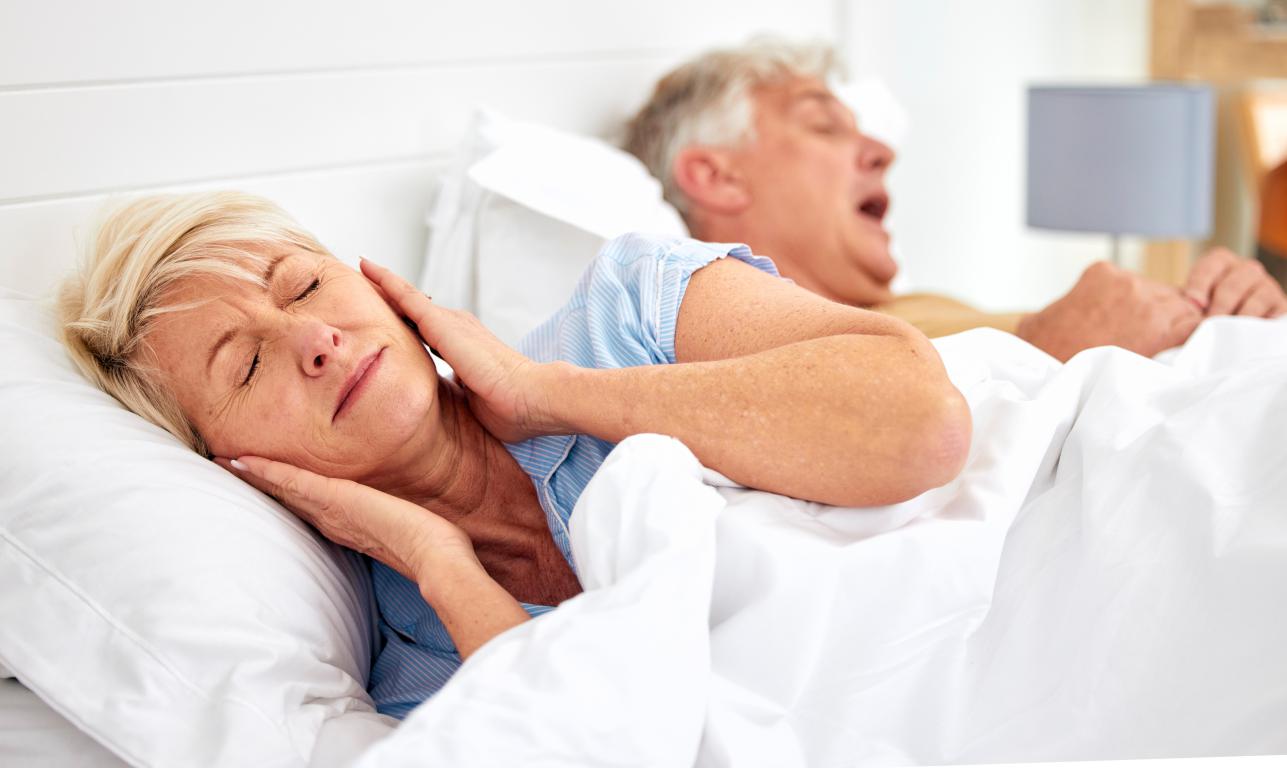
The Connection Between Snoring and Sleep ApneaIt's clear now that while snoring and sleep apnea are often linked, they are not one and the same. Think of it this way: all people with sleep apnea snore (though not always loudly enough to be noticed), but not all people who snore have sleep apnea. Snoring is a symptom, and for some, it's just a symptom of a noisy airway, but for others, it's a crucial warning sign of a more serious underlying condition. Snoring as a Symptom of Sleep ApneaFor individuals with Obstructive Sleep Apnea (OSA), snoring is almost always present. It's the sound made by the frantic efforts of air trying to push past a collapsed or blocked airway. The characteristic snoring associated with OSA isn't usually just a steady rumble. Instead, it's often described as very loud, punctuated by moments of silence where no breathing occurs, followed by a loud snort or gasp as the airway reopens. This cycle repeats itself throughout the night, sometimes hundreds of times. The key difference lies in the cause of the snoring and its impact on breathing. In simple snoring, the airway narrows, causing vibrations, but there are no significant pauses in breathing and no major drops in blood oxygen levels. In OSA, the airway actually closes, leading to a complete stop in airflow, a drop in oxygen, and a brief awakening (even if you don't remember it) as your brain kicks in to save you. These repeated stops and starts in breathing are what define sleep apnea, and the loud snoring is often the audible manifestation of this struggle. When Snoring is NOT Sleep ApneaSo, when is snoring just snoring? It's important to remember that many, many people snore for reasons completely unrelated to sleep apnea. If your snoring is:
In these cases, your snoring is more likely to be simple or primary snoring. While it might be a nuisance, especially for anyone sharing your bedroom, it doesn't typically carry the same serious health risks as snoring linked to sleep apnea. It's often manageable with lifestyle changes, such as sleeping on your side, avoiding alcohol before bed, or addressing nasal congestion. However, if there's any doubt, or if your snoring has changed, become louder, or if new symptoms have appeared, it's always wise to get it checked out by a healthcare professional. They can help you determine whether your snoring is just a noise or a sign of something that needs attention. 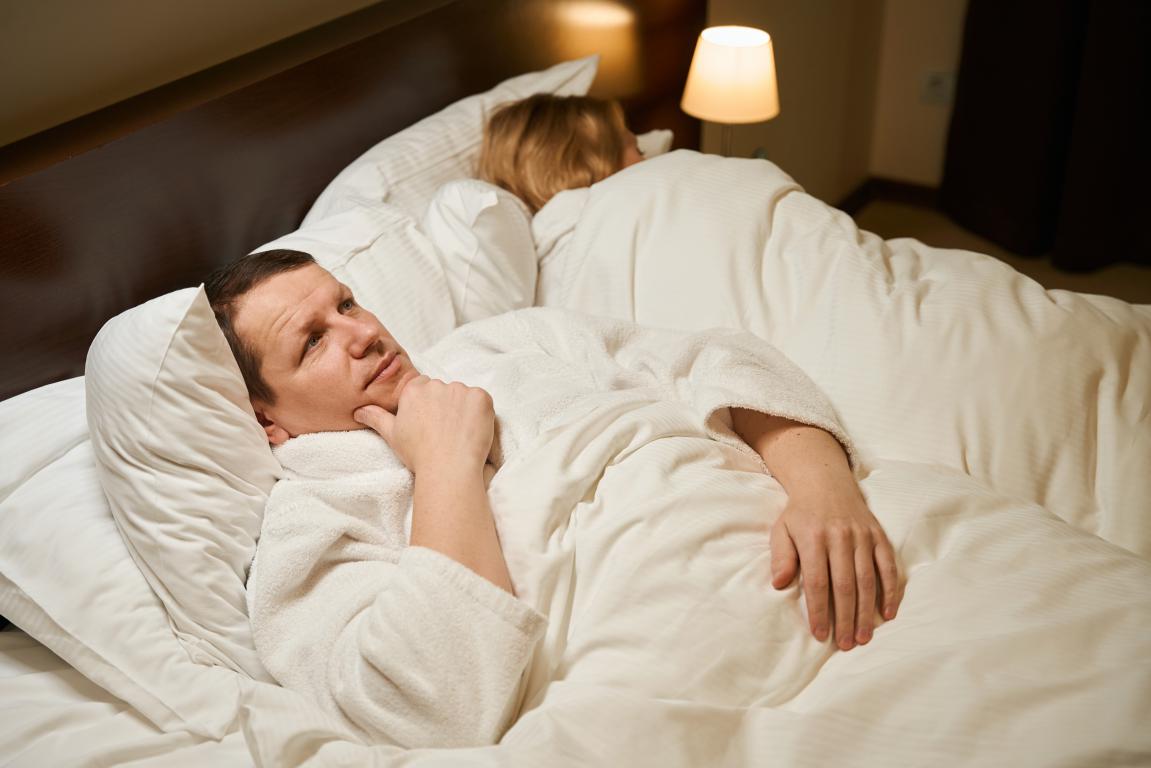
When Should You Be Concerned About Snoring?It's natural to wonder if your snoring is just a minor annoyance or a signal that something more serious is going on. We've talked about the differences between simple snoring and problematic snoring, but let's make it really clear when your snoring should prompt you to seek medical advice. It's always better to be safe than sorry, and getting an expert opinion can bring immense peace of mind. Red Flags to Watch Out ForIf you or your bed partner notice any of the following, it's a strong indication that you should speak to your GP about your snoring:
It's important to remember that you don't need to tick every single one of these boxes. Even one or two of the more significant red flags, like observed breathing pauses or severe daytime sleepiness, should be enough to prompt a conversation with your doctor. Why Early Detection MattersYou might be thinking, "It's just snoring, surely it's not that big a deal." However, as we've discussed, if that snoring is a symptom of sleep apnea, it absolutely is a big deal, and early detection is incredibly important. Preventing Serious Health Complications: The most compelling reason for early detection is to prevent the long-term health risks associated with untreated sleep apnea. Catching it early and starting treatment can significantly reduce your risk of developing or worsening conditions like high blood pressure, heart disease, stroke, diabetes, and even certain liver problems. Addressing the root cause can help manage these conditions much more effectively. Improving Quality of Life: Untreated sleep apnea can drastically diminish your quality of life. Constant fatigue affects everything – your relationships, your work performance, your ability to enjoy hobbies, and your overall sense of well-being. Getting a diagnosis and starting treatment can lead to a dramatic improvement in energy levels, mood, concentration, and general vitality. Imagine waking up feeling truly refreshed for the first time in years! Enhancing Safety: Excessive daytime sleepiness isn't just uncomfortable; it's dangerous. Drowsy driving is as risky as drunk driving, and sleep apnea increases the risk of road accidents. It can also lead to accidents at work, especially if your job involves operating machinery or requires high levels of concentration. Treatment can restore your alertness and significantly improve your safety and the safety of those around you. Better Sleep for Everyone: Let's not forget the impact on your loved ones. Loud, disruptive snoring and the worry of observed breathing pauses can severely impact a bed partner's sleep and overall well-being. Treating sleep apnea often means a quieter, more peaceful night for everyone in the household. If you suspect you might have sleep apnea, don't delay in speaking to your GP. They can assess your symptoms, consider your medical history, and, if necessary, refer you for a sleep study to get a definitive diagnosis. Taking that first step can make a world of difference to your health and your life. 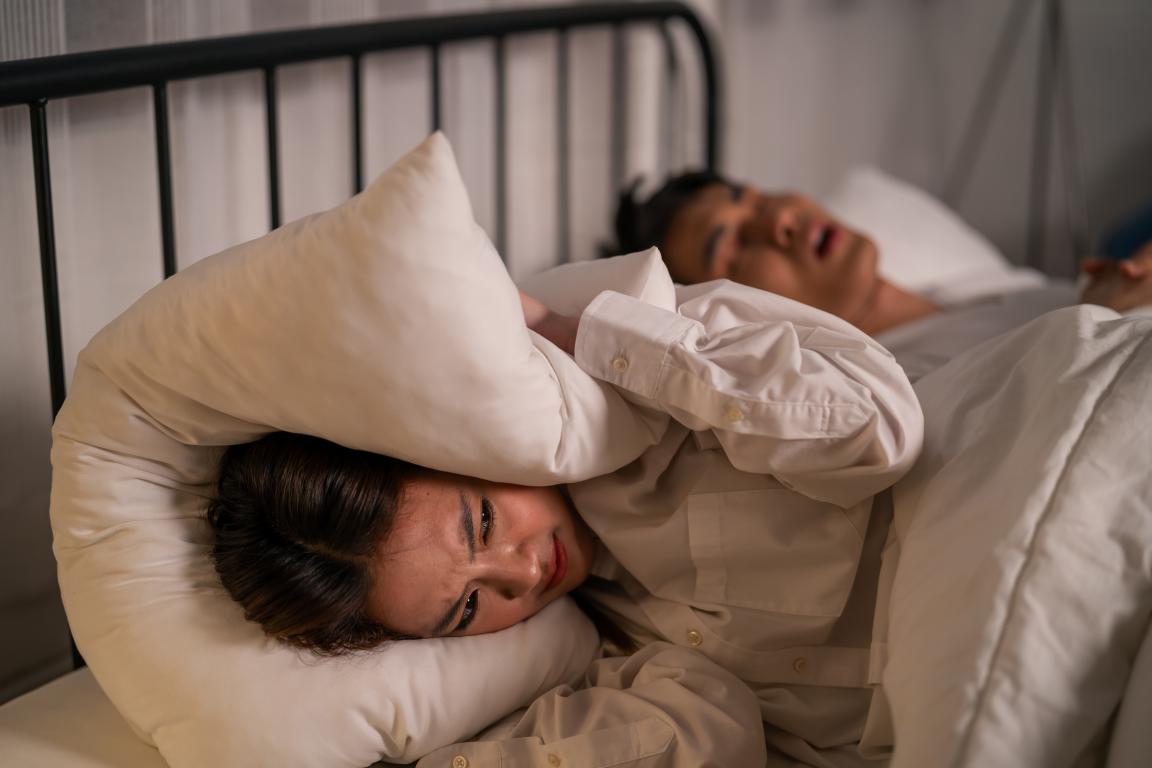
What Happens If Sleep Apnea Goes Untreated?Ignoring problematic snoring, particularly if it's a symptom of sleep apnea, can have serious and cumulative effects on your health and daily life. It's not a condition that simply "gets better on its own"; in fact, it often worsens over time if left unaddressed. Understanding the potential consequences can highlight why seeking diagnosis and treatment is so vital. The Escalation of Health RisksThe repeated cycles of oxygen deprivation and sleep fragmentation that characterise untreated sleep apnea put immense stress on your body's systems, leading to a progressive escalation of health risks:
Impact on Daily Life and Mental Well-beingBeyond the physical health risks, untreated sleep apnea takes a heavy toll on your daily life and mental state:
The good news is that sleep apnea is a treatable condition. Once diagnosed, there are effective treatments available that can dramatically reduce or eliminate the breathing pauses, improve sleep quality, and significantly mitigate these health risks. This is why paying attention to your snoring and seeking medical advice when red flags appear is one of the most important things you can do for your long-term health and well-being. 
What Can You Do If You're Concerned?If you've read through this guide and found yourself recognising some of the red flags for problematic snoring or sleep apnea, it's completely natural to feel a bit worried. But please know that the most important step is acknowledging your concerns and taking action. You're not alone, and there are clear steps you can take to get answers and, if needed, find effective solutions. Steps to Take and Who to Talk To
What to Expect After a DiagnosisReceiving a diagnosis of sleep apnea can feel overwhelming, but it's also the crucial first step towards feeling better and protecting your long-term health. The good news is that sleep apnea is highly treatable.
Remember, the goal is not just to stop the snoring, but to ensure you're breathing freely and getting the restorative sleep your body needs to function well and stay healthy. Taking that first step to talk to your GP is an act of self-care that can profoundly improve your quality of life. 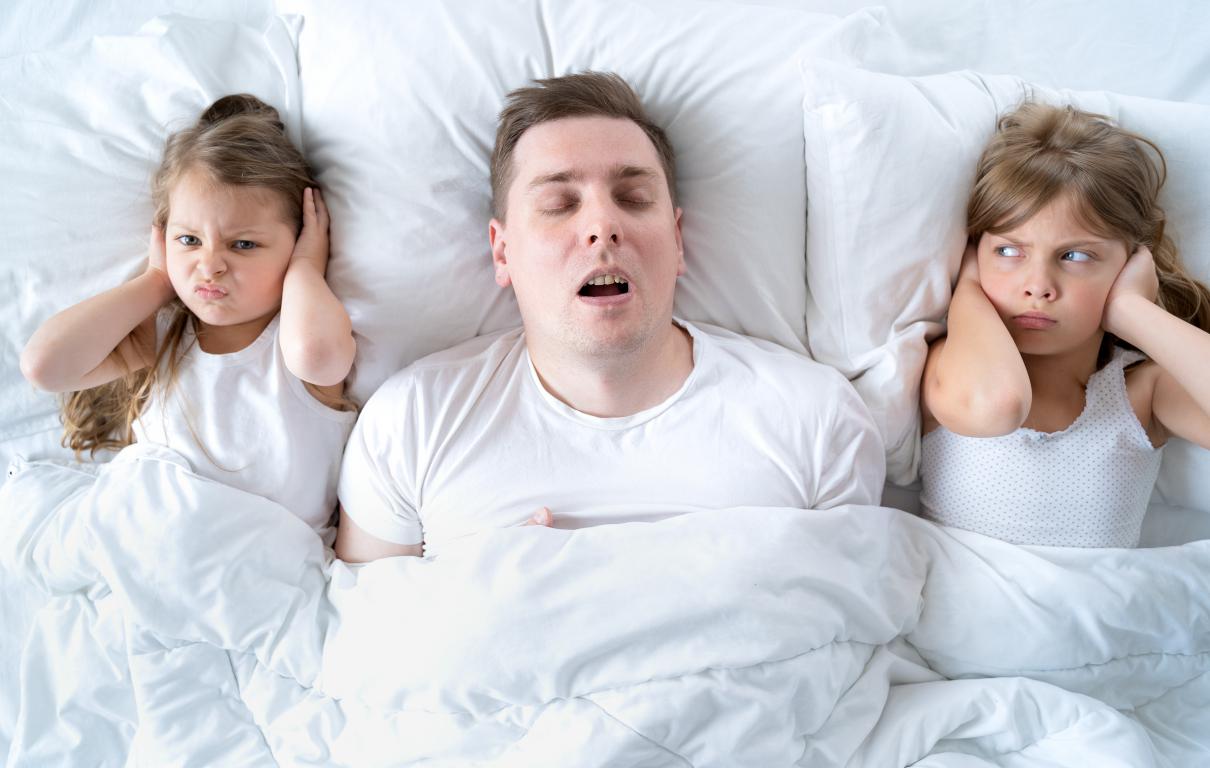
Understanding Sleep Apnea FurtherWe really hope this guide has helped clear things up about snoring. It can be confusing to know when it's just a noisy sleep, and when it might mean something more, like sleep apnea. We get that reading this might bring up a lot of thoughts, and maybe even more questions, especially if you're seeing your own experiences in what we've talked about. To help you with your next step, we've put together another guide about sleep apnea itself called "What Is Sleep Apnea and How Do I Know If I Have It?". It goes into detail about what causes it, the signs to look for, how it's diagnosed, and the different ways it can be treated. Think of it as your next guide to understanding. It's there to help you learn more about sleep apnea and feel sure about looking after your sleep health. We're here to help you get more rest and feel healthier.
© 2024 The Card Project Uk Ltd
VAT: 453 2087 06
|